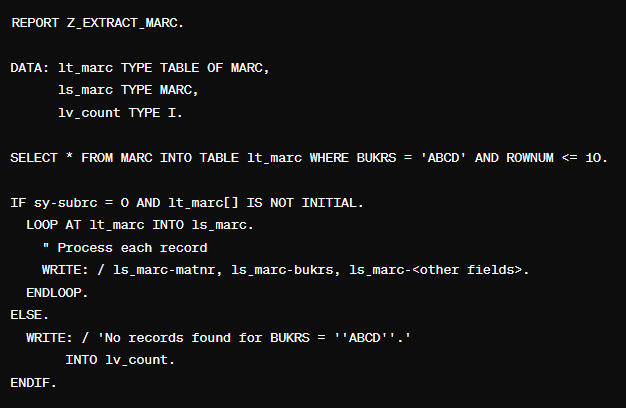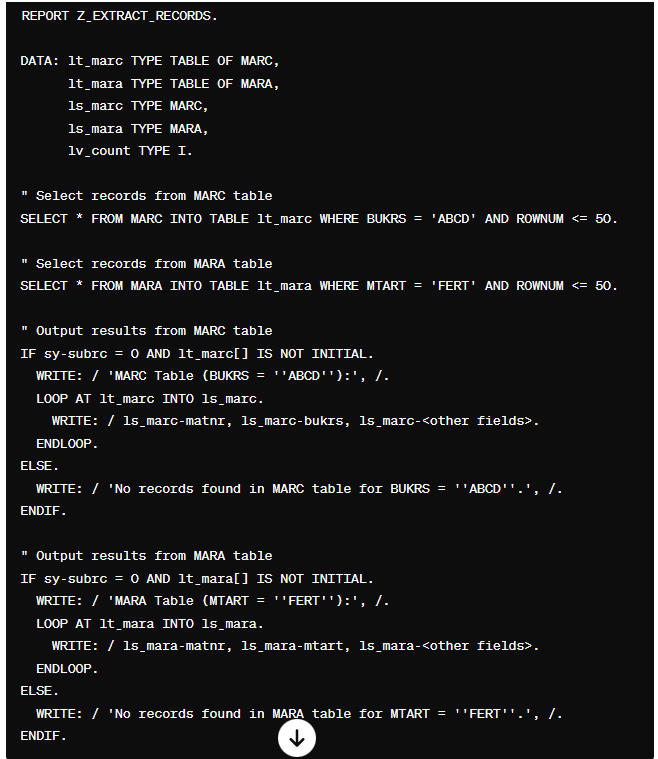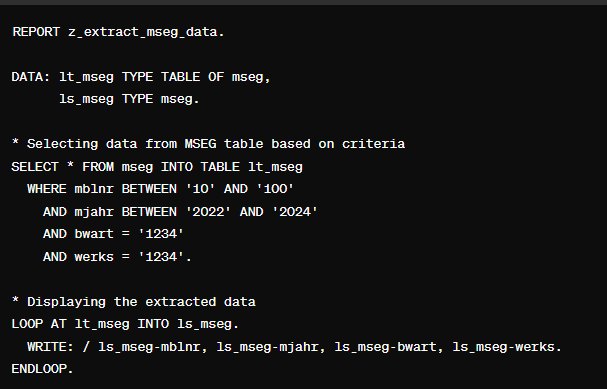As the business technology landscape evolves, the marriage of artificial intelligence (AI) with SAP ABAP (Advanced Business Application Programming) is reshaping the way companies approach software development within the SAP ecosystem. This article looks at the revolutionary integration of artificial intelligence with SAP ABAP programming, exploring how this merger is revolutionizing SAP development processes.
SAP ABAP and its legacy
The foundation of SAP development
SAP ABAP has long been the backbone of SAP development, providing a powerful and versatile language for customizing SAP applications. ABAP capabilities have encouraged the customization of SAP systems to meet specific business requirements.
Challenges in traditional development
Traditional SAP development in ABAP involves manual coding, testing and debugging processes. As business complexity increases, this traditional approach faces challenges in terms of speed, efficiency and adaptability to dynamic market demands.
Integration of artificial intelligence in SAP ABAP programming
Automation of development processes
Integrating artificial intelligence into SAP ABAP programming introduces automation into development processes. AI algorithms can analyze patterns in existing code, identify common errors, and even suggest optimized solutions, reducing manual coding efforts and minimizing the risk of errors.
Improving code quality
AI-driven tools can assess code quality, adherence to best practices, and compliance with coding standards. This ensures that developed applications not only meet functional requirements, but also conform to industry standards, leading to more robust and maintainable code bases.
I asked the AI tool to write a simple program to extract data from MARA, and no doubt it produced some nice code.

To test further, I asked him to write a program to extract data by combining two tables — mara (material master data) and marc (material master company code) — and he produced the code below. There is no doubt that this is very good code.

But when I asked the AI to write an extract of the data from the MSGEG table with a multiple condition query, which is a bit complex, the query I gave the AI was: “ABAP program for extracting data from mseg table where mblnr in 10 to 100 and mjahr in 2022 to 2024 and bwart eq 1234 and werks Eq 1234“. I received the code below which is not good.

Intelligent development aid
Code assistants powered by artificial intelligence
AI integration with SAP ABAP introduces intelligent code assistants. These assistants can provide real-time suggestions, auto-completion, and context-aware recommendations as developers write code, streamlining the coding process and improving overall developer productivity.
Predictive debugging
AI can predict potential problems in code during the development phase, allowing developers to proactively address issues before they escalate. This predictive debugging capability saves time, increases code reliability, and facilitates a smoother development lifecycle.
Accelerating innovation
Rapid prototyping and innovation
Combining artificial intelligence with SAP ABAP accelerates innovation by facilitating rapid prototyping. Developers can leverage AI tools to rapidly build and test prototypes, allowing organizations to experiment with new functionality and features before full-scale implementation.
Adaptability
SAP ABAP programming infused with artificial intelligence enables organizations to respond more quickly to changing business requirements. Developers can quickly adapt and customize applications, ensuring that SAP systems remain agile and aligned with evolving business needs.
Challenges and considerations
Upgrading skills
Integrating artificial intelligence with SAP ABAP requires upskilling among development teams. Organizations must invest in training programs to equip their developers with the knowledge and expertise needed to effectively use AI tools.
Ethical AI practices
As AI becomes an integral part of SAP development, organizations must adhere to ethical AI practices. Ensuring fairness, transparency and accountability in AI-driven decisions is essential for responsible development.
Conclusion
The integration of artificial intelligence with SAP ABAP programming marks a transformative leap in SAP development. By bringing intelligence to the coding process, organizations can achieve unmatched efficiency, code quality and innovation in their SAP applications. As this synergy between AI and SAP ABAP continues to develop, but it takes some time for AI to mature to write complex ABAP programming logic, it promises to redefine the future of SAP development, empowering organizations to remain agile in the face of technological advances.